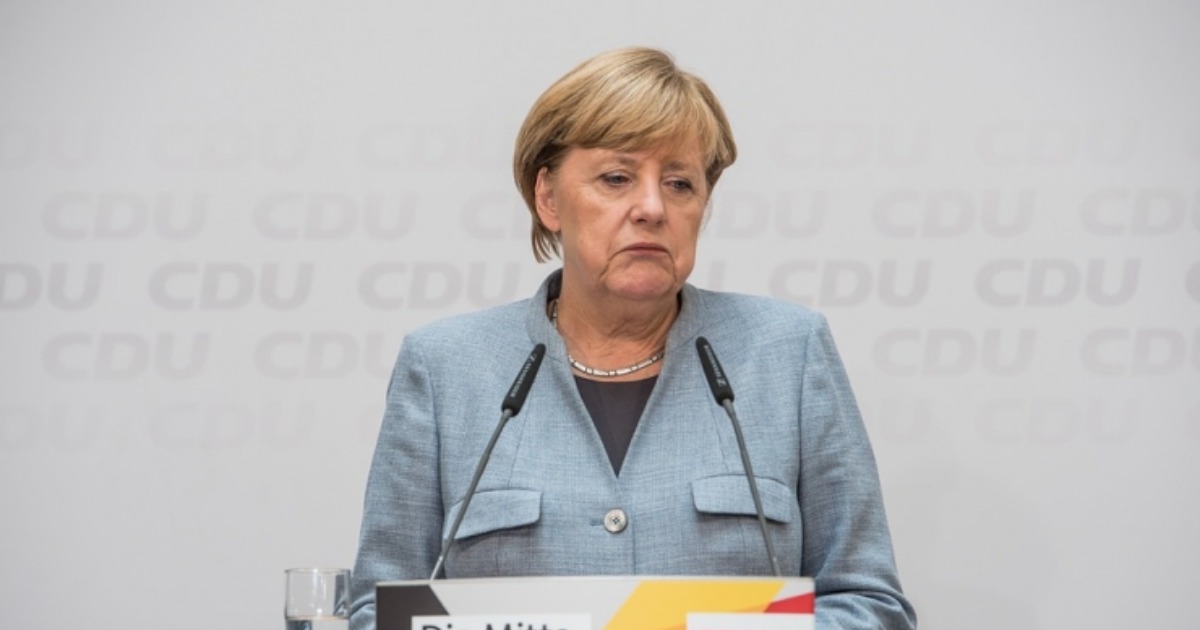Merkel and Her Ill-Advised CAI Deal
What US and German political transitions mean for China relations.
January 16, 2021

Editor’s note: This Thursday, our publisher Stephan Richter, was interviewed on the NPR Marketplace Morning Report by the show’s anchor David Brancaccio. The topic of their conversation was the EU’s rush to conclude an investment deal with China.
The segment was broadcast nationwide all across the United States on NPR — as a 5-minute segment just ahead of the 8 AM news.
David Brancaccio: Big transition in Washington, but also in Germany later this year. Chancellor Angela Merkel is leaving. And you see, what, a bit of a pattern with leaders in Germany during the transition times?
Stephan Richter: Yes, unfortunately, German leaders — now Angela Merkel, who’s exiting at the end of the year, and earlier, her predecessor Gerhard Schröder, the social democrat in 2005, — both doing things untoward and unfriendly in the context of the transatlantic relationship late in their terms in office.
What Merkel did, specifically, is that she rushed through this EU comprehensive agreement on investment with China (CAI) in the last few days of 2020. And the problem with that, really, is that Joe Biden and his team had asked her to wait so that a consolidated Western position on how to deal in commerce with China had been developed.
And so it seems that the woman who has always talked very big about being such a great friend of the United States, rebuffed the incoming U.S. president completely unnecessarily. And that is going to hurt not just the transatlantic relationship, but also Western relations with China.
Brancaccio: Now, there will be some overlap between Joe Biden as president, and Chancellor Merkel will still be in power for a number of months. Maybe they can hash this out?
Richter: I think that ship has sailed. The Chinese are incredibly able diplomats. They have basically split the Europeans and the Americans. The Europeans agreed to a Chinese view of easy commitments that are just mere words.
Mind you, no sooner than the Chinese got the deal they wanted from Mrs. Merkel, did Xi Jinping repay her that favor by arresting a lot of the pro-democracy protesters in Hong Kong.
Brancaccio: But there’s some sense if Germany is doing a little “Brüderschaftstrunk” with Beijing here — I mean, German industry would like to sell cars in China and make cars in China, and friendly relations might help that.
Richter: Yes, but you also have to realize that Mrs. Merkel is an expert in static thinking. What’s the strategic point of serving the German car industry?
After all, she’s not the head of the German car industry association or car exporters association. In addition, it is highly doubtful that — while Germans sell a lot of cars by volume in China — that there are profits going along with it. You can’t really repatriate the profits from China very well. So it is really bewildering what she’s been doing.
Takeaways
Unfortunately, German leaders have a habit of doing things untoward and unfriendly in the context of the transatlantic relationship.
The Chinese are incredibly able diplomats. They have basically split the Europeans and the Americans.
Merkel is an artist in static thinking. What is the strategic point of serving the German car industry?

